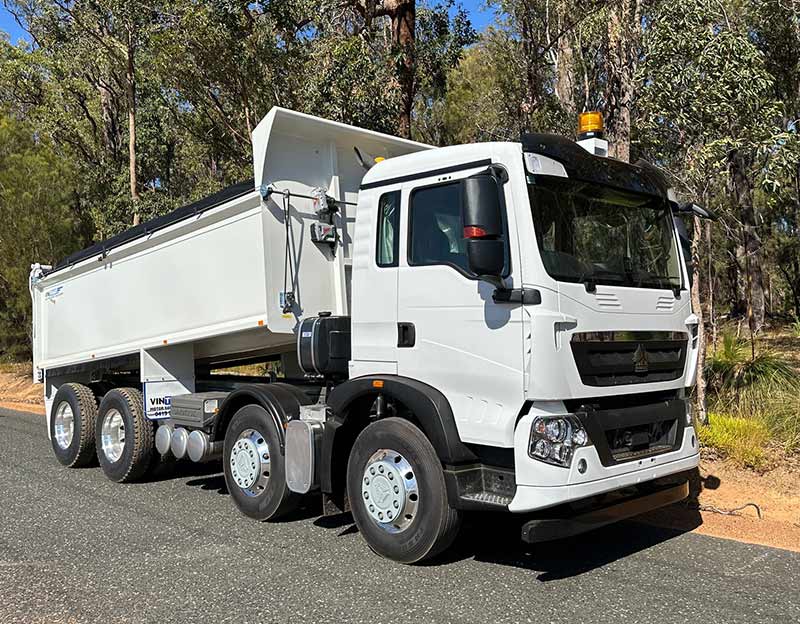Stepping into the world of heavy trucks for the first time is a big move. It’s not just about picking a vehicle that looks good or fits the budget; it’s about choosing an asset that will support your business, your workload, and your long-term financial health. Whether you’re an owner-operator getting started or a business expanding into transport, knowing what to ask before signing the papers can save you money, frustration, and downtime.
This guide explores the 5 Must-Ask Questions Before Buying Your First Truck, giving you practical insights to make a smart, informed decision.
Why Asking the Right Questions Matters
Buying a truck is a high-stakes purchase. Unlike a car, a truck isn’t just about getting from point A to B; it’s about reliability, payload, fuel efficiency, and suitability for the jobs you’re tackling. Asking the right questions helps you avoid costly mistakes, ensures the truck matches your operational needs, and gives you confidence that your money is being well spent.
Think of it as investing in a business tool, not just a vehicle. Every question you ask up front lays the foundation for years of efficient operation.
The 5 Must-Ask Questions Before Buying Your First Truck1. What Type of Work Will the Truck Handle?
This is the cornerstone question. The truck you choose must be aligned with your business purpose. Are you planning long-haul freight, local construction deliveries, or specialised transport like refrigerated goods? Each of these tasks demands a different configuration in terms of engine size, axle layout, cab type, and suspension.
For example, long-haul work benefits from sleeper cabs and fuel-efficient drivetrains, while construction jobs often require durable chassis builds with higher payload capacity. Clearly defining your work profile helps narrow down your choices and stops you from over-investing in unnecessary features.
2. What Are the Total Ownership Costs?
The purchase price is just the beginning. Ownership costs include fuel consumption, routine servicing, major repairs, insurance, registration, and depreciation. A truck with a lower upfront cost but poor fuel economy may end up being more expensive in the long run than a slightly pricier but fuel-efficient model.
Running cost calculators and consultation with a trusted mechanic can shed light on the true cost of ownership. Don’t forget to consider parts availability—if parts are rare or expensive, downtime can be costly to your business.
3. How Reliable Is the Truck’s Service and Maintenance History?
If you’re buying used, a thorough check of service history is essential. Look for consistent servicing intervals, records of part replacements, and signs of major engine or transmission work. Trucks without a clear maintenance record are riskier investments, as hidden issues can surface later.
Even with new trucks, it’s worth researching common reliability issues for the make and model. Online communities and resources such as Wikipedia’s page on trucks can give you a broader understanding of different truck types, their evolution, and their uses worldwide.
4. Does the Truck Comply with Regulations?
Trucks are subject to strict laws regarding emissions, weight limits, and roadworthiness. Buying a non-compliant vehicle can lead to fines, expensive modifications, or being unable to operate legally. Check local state or national regulations to make sure the truck you’re considering ticks all the compliance boxes.
This is particularly important for older models, which may not meet modern emission standards. Always confirm compliance before finalising your purchase.
5. What Financing Options Are Available?
Trucks are capital-intensive purchases, and financing plays a huge role in affordability. Investigate loan options, lease agreements, or hire purchase plans that fit your financial situation. Compare interest rates, balloon payments, and terms across multiple providers.
It’s wise to calculate your monthly repayments against your expected workload and revenue. This ensures you won’t be stretched too thin and can keep your business sustainable even during slower months.
Common Mistakes First-Time Buyers Make
Many first-time buyers rush into a decision without proper research. Some buy trucks that are oversized for their work, leading to higher operating costs. Others underestimate the importance of after-sales support or ignore compliance issues. By keeping the five key questions in mind, you’ll avoid these pitfalls and set yourself up for success.
Making the Right Choice
When it comes down to it, buying your first truck is about balancing practicality with future growth. Ask yourself not only whether the truck can do the job today, but whether it will still meet your needs as your business expands.
If you live in Perth and are exploring your options, you might want to check out to see what’s available locally.
Your first truck purchase is one of the most important business decisions you’ll make. By asking the right questions—about workload suitability, ownership costs, service history, compliance, and financing—you protect yourself from unnecessary risks and set your business up for steady growth.

Leave a Reply